1 Kings 19 New Century Version (NCV)*
1 “King Ahab told Jezebel every thing Elijah had done and how Elijah had killed all the prophets with a sword. 2 So Jezebel sent a messenger to Elijah, saying, “May the gods punish me terribly if by this time tomorrow I don’t kill you just as you killed those prophets.”
3 When Elijah heard this, he was afraid and ran for his life, taking his servant with him. When they came to Beersheba in Judah, Elijah left his servant there. 4 Then Elijah walked for a whole day into the desert. He sat down under a bush and asked to die. “I have had enough, Lord,” he prayed. “Let me die. I am no better than my ancestors.” 5 Then he lay down under the tree and slept.”
Huh? Did a prophet of the Lord just ask to die? Did he then just lay down and sleep? In this modern day a certified counselor would recognize this behavior as indicative of depression. Maybe even PTSD. He did, after all, slaughter the numerous prophets of Baal with his sword. Doing the right thing doesn’t exempt us from the physical and mental fallout of our actions. But aside from that, we just don’t expect our biblical heroes to be human enough to wish for death, do we? And you know what, we are appalled when a modern day believer expresses the same desire.
Around March of 2014, about three months after Bethany and Katie died, I received a phone call from my father. In those intervening months between December and March David and I had been caring for Gracen in ways we had never done before. There were pain meds, belly shots, bed pans, sponge baths, and two person transfers since her right leg was encased in an imobilizer as she recovered from the injuries she received in the accident that killed her sisters. David was unemployed and the bills started rolling in. We were exhausted on about every level possible.
My Dad, after catching up on what was happening three hours north, asked me, “How are you really doing?” To which I replied, “I’m tired. I don’t want to be here anymore. I’m just wishing for the rapture.” My Dad, bless his heart, responded, “You can’t feel that way”, and went on to tell me why.
We act as if it’s unscriptural to wish for death unless someone is suffering severe physical agony. Then it’s deemed okay to pray that God will take them home and relieve them of their suffering. But that’s not the message in scripture.
It’s not wrong to long for your eternal home.
It’s wrong to take it upon yourself to end your life, but not wrong to wish for death.**
What I find really interesting here is the fact that neither God nor His angel rebuked Elijah for either his actions or his feelings. Instead, God sent an angel to minister to Elijah. See for yourself:
“5b Suddenly an angel came to him and touched him. “Get up and eat,” the angel said. 6 Elijah saw near his head a loaf baked over coals and a jar of water, so he ate and drank. Then he went back to sleep.”
Elijah went back to sleep! And the angel just let him. There were no recriminations. No get up!, Do something! messages from on high. No count your blessings rebuke. Neither God nor His Angel had one word to say to Elijah about his desire for death.
Not one word.
And the story continues . . .
7 “Later the Lord’s angel came to him a second time. The angel touched him and said, “Get up and eat. If you don’t, the journey will be too hard for you.” 8 So Elijah got up and ate and drank. The food made him strong enough to walk for forty days and nights to Mount Sinai, the mountain of God. 9a There Elijah went into a cave and stayed all night.”
Okay, so here’s what we know. God sent an angel twice to Elijah and each time the angel came with food and water. We also know that at the second visitation the angel told Elijah he needed the nourishment so he’d have the strength to make a journey. What we don’t know is if Elijah was planning the journey or if God instructed the angel to tell Elijah to get his butt to Mount Sinai. I’m leaning toward the idea that Elijah had rested and decided, if God won’t come to me, I’m going to Him. Maybe he wanted an answer to his request that badly. (And I wonder if he was such a mess that he would have ventured off without the provisions necessary to physically make the trip).
Regardless, it bears mentioning that in all the time between Elijah’s run to escape Jezebel, his request to die, the angel’s first visit, the second visit, and the 40 day journey, God is silent.
He’s silent.
And it seems Elijah was too.
I suppose you could say that Elijah had said his piece in back in verse four, “I’ve had enough. Let me die.”. and he didn’t believe it bore repeating.
Finally, God speaks.
I don’t know about you but God didn’t say anything I might have expected Him to say. He simply asked Elijah a question.
9b “. . . “Elijah! Why are you here?”
And when you consider that God knows all, isn’t it interesting that He extends an invitation to Elijah to explain himself?
And you know what? That wasn’t the first time in recorded history that God interacted with His children that way. Way back in the garden of Eden, God questioned Adam. “Where are you?”, “Who told you that you were naked? Have you eaten from the tree that I commanded you not to eat from?” The angel of the Lord questioned Hagar on two separate occasions. “Where have you come from, and where are you going?” “What ails you, Hagar?” God questioned Jonah too (who, by the way, also wished for death), “Is it right for you to be angry about this?”
Sometimes we don’t really know what we think and feel until the right question is asked. We are filled with angst but incapable of expressing our thoughts and feelings with words.
A year and a half after Bethany and Katie died, I was visiting with my brother-in-law and he asked me, “Why do you like to read?” I responded that reading enabled me to escape the constantly churning thoughts in my mind. It wasn’t until later that I realized I hadn’t answered the question before me in the spirit it was intended. The majority of bereaved individuals contemplate every thought through the filter of grief. Grief brain some call it. And that’s exactly what I had done.
Following the collision, reading was an effective distraction for me. It filled my mind with thoughts unrelated to death and the minutiae of health, legal, financial and insurance issues. I needed that, but I’ve had a lifelong enjoyment of the written word. It takes me places I will never visit in this lifetime. It increases knowledge. It has generated empathy for people in circumstances with which I lack experience. It makes me laugh and cry and question and it promotes understanding and compassion. That’s why I like to read. That’s the answer my brother-in-law was expecting. That’s what he wanted to know.
Likewise, Elijah didn’t answer the question God asked either. He filtered God’s question through fatigue, fear and discouragement.
10 He answered, “Lord God All-Powerful, I have always served you as well as I could. But the people of Israel have broken their agreement with you, destroyed your altars, and killed your prophets with swords. I am the only prophet left, and now they are trying to kill me, too.”
11 The Lord said to Elijah, “Go, stand in front of me on the mountain, and I will pass by you.” Then a very strong wind blew until it caused the mountains to fall apart and large rocks to break in front of the Lord . But the Lord was not in the wind. After the wind, there was an earthquake, but the Lord was not in the earthquake. 12 After the earthquake, there was a fire, but the Lord was not in the fire. After the fire, there was a quiet, gentle sound. 13a When Elijah heard it, he covered his face with his coat and went out and stood at the entrance to the cave.”
What on earth was all that about? A tornado followed by an earthquake and then fire. Could it be God wanted Elijah to realize that not only was He near, but He wasn’t angry with him? Every one of those natural disasters are frequently equated with the wrath of God. But God wasn’t in the wind, the earthquake or the fire. No, God showed up in a quiet, gentle sound.
13b Then a voice said to him, “Elijah! Why are you here?”
14 He answered, “Lord God All-Powerful, I have always served you as well as I could. But the people of Israel have broken their agreement with you, destroyed your altars, and killed your prophets with swords. I am the only prophet left, and now they are trying to kill me, too.”
I wonder if “why are you here?”, really translates to, “Elijah, talk to me! Tell me what you’re thinking. Are there questions you want to ask me?”
Back in verse four, Elijah was pretty clear about what he was asking for. He told the Lord he’d had enough and asked to die. But face-to-face, so to speak, Elijah didn’t ask to die. Instead he just reiterated his discouragement and fear. He also didn’t change his response following a show of God’s power either (maybe the purpose of the wind, earthquake and fire was to demonstrate God’s power in order to encourage Elijah by showing him that He had the ability to protect him from all those who sought his life).
I wonder, did God repeat His question to give Elijah an opportunity to decide if he had it in him to continue serving as a prophet? It’s like asking, “Is that what you really want, Elijah, to quit? Make sure that’s really what you want. Say it out loud so there are no misunderstandings.” And Elijah’s response put in motion the ordination of Elisha to take Elijah’s place.
Wow, that speaks to me!
I also think the fact that Elijah replies to God exactly the same way he did the first time the question was asked is telling. The wind, the earthquake, the fire and the quiet gentle voice did nothing to change Elijah’s perspective regarding ministry and life. Is not God’s passing by Elijah synonymous with God showing Moses His glory?
This was no minor event in Elijah’s relationship with God. It was a big fat deal when God passed by. It’s not something He routinely did. And yet Elijah is . . . underwhelmed. I don’t get the impression that Elijah was at all impressed with this Devine visitation.
I do, however, get the distinct impression that Elijah was completely world weary.
He was done.
And God knew it.
Yes, God assigned Elijah new tasks, but they were passing the baton tasks not carry on tasks.
15 The Lord said to him, “Go back on the road that leads to the desert around Damascus. Enter that city, and pour olive oil on Hazael to make him king over Aram. 16 Then pour oil on Jehu son of Nimshi to make him king over Israel. Next, pour oil on Elisha son of Shaphat from Abel Meholah to make him a prophet in your place.
Notice how Elijah responds to Elisha’s request to return to his parents to tell them good-bye after anointing Elisha his successor in 1 Kings 19:20:
“Elisha then left his oxen and ran after Elijah. “Let me kiss my father and mother goodbye,” he said, “and then I will come with you.” “Go back,” Elijah replied. “What have I done to you?”
“What have I done to you?”, is the most common way various versions of the Bible translate Elijah’s response, but here are a few others:
“Elijah replied, “Go on back, but think about what I have done to you.” ~ NLT
“Go back,” Elijah answered him. “I’m not stopping you.” ~ GOD’S WORLD Translation
“And he said to him: Go, and return back: for that which was my part, I have done to thee.” ~ Douay-Rheims Translation
The first time I read Elijah’s response it was in a translation that read, “Go back. What have I done to you?” I came away with the impression that Elijah didn’t really care what Elisha did following his anointing. It reinforced my impression that Elijah’s tank was empty.
I am no Bible scholar, but how God handled Elijah’s request for death, both in what He said and did, and what He didn’t say and do, made an impression on me.
And then comes 2 Kings chapter 2 . . . but before we get to that let’s backtrack a little.
I know many pastors, preachers and theologians believe the events described in 1 Kings 19 indicate that Elijah lacked faith, but that’s not what I see at all. Nowhere does it indicate that Elijah thought that God was incapable of caring for him, in fact, his response indicates the exact opposite. Twice in Elijah’s reply to God’s question he refers to God as the “Lord God All-Powerful”.
Elijah didn’t lack faith in what God could do. He feared what God would allow.
And why wouldn’t he? He certainly wasn’t a fool. He knew how all the prophets that came before him died. They were killed by the sword – by God’s own people. They killed the messenger because they didn’t like the message.
Elijah didn’t think too highly of himself. He didn’t expect a better end because of his service for the Lord. In verse four he plainly states, “I am no better than my ancestors”.
In Elijah’s despair, God was patient and kind. He provided for Elijah’s needs and protected his life. He pursued Elijah. He didn’t minimize or rebuke him for his fear. What I see is God’s great love for His weary servant. Elijah feared a prophets common end and in God’s great and merciful love He spared Elijah not only a prophet’s demise but death altogether.
Back to 2 Kings 2 . . . I love this part!
“And it came to pass, as they [Elijah and Elisha] still went on, and talked, that, behold, there appeared a chariot of fire, and horses of fire, and parted them both asunder; and Elijah went up by a whirlwind into heaven.” ~ 2 Kings 2:11 KJV
A flaming chariot is one seriously awesome ride! Don’t you agree?
I love this glimpse into the heart of God for His world weary servant. It tells me that God will treat me with the same tender care – that I can trust that He knows when enough is enough. That I am not just a pawn for kingdom purposes. That my feelings are of great concern to the Father. And on difficult days when my heart longs for death, when the cares of this world are too much for me, I need the assurance that God responds with compassion, love and faithfulness. I need to know that in my head and my heart.
I need to be able to experience Paul’s prayer for the Ephesians every single day of my life.
“16 I pray that out of the riches of His glory, He may strengthen you with power through His Spirit in your inner being, 17 so that Christ may dwell in your hearts through faith. And I pray that you, being rooted and grounded in love, 18 may have power, together with all the saints, to comprehend the length and width and height and depth of His love, 19 and to know the love of Christ that surpasses knowledge, that you may be filled with all the fullness of God.” ~ Ephesians 3:16-19
How I need this!
My inner being strengthened by the Holy Spirit.
To be rooted and grounded in love.
To comprehend the full measure of Christ’s love for me – far beyond the realms of intellectual understanding. . .
Far beyond what the human heart and mind can grasp.
I need a supernatural understanding of God’s love.
That is not something I can manufacture by determination and tenacity. My individual efforts can only take me so far.
I can never be filled with the fullness of God outside of the supernatural work of the Holy Spirit.
When a believer expresses the desire for death, there are two things you should be concerned about,
1) Is this individual at risk of harming themselves?, and
2) How can I validate their feelings, while affirming their ability to continue on?
Then you should act accordingly.
If you believe the individual is suicidal, or you are unsure, contact the National Suicide Prevention Lifeline at 1-800-273-8255.
Just do it. They can point you to local resources.
It’s better to call and have your fears allayed than it is to assume an individual will not act upon those feelings. A phone call can save a life. I can tell you horror stories of families who have suffered unspeakable pain and trauma because someone who was concerned didn’t make that call.
Err on the side of caution!
In the majority of cases, when a desire for death is voiced by a believer, that individual has experienced great loss and/or trauma or repeated hardships and losses. That person needs a friend who listens without judgment, without rebuke, and they might need a trip to their physician. They most definitely need to know that their desire is not uncommon among deeply wounded believers and that they are in good Biblical company.
They need to know that God understands and treats broken believers with tender care.
The question God asked, “Elijah, Why are you here?”, could very well have been asked of me. How would I have replied had that quiet gentle voice asked me, “Janet, why are you here?” My answer probably would have sounded something like this: “I’ve done my best. I’m tired. My eyes have seen things that are impossible to scrub from my mind. Too many losses. Too much sorrow and sadness. Too much pain and too much fear. I don’t want to be here anymore. I’ve had enough!”
Since God treated world weary Elijah with such gentleness, I can expect He will do the same for me. . .
Well, maybe not the flashy flaming chariot ride home . . . but I could be among the generation of people who get snatched up in the rapture.
That’s every bit as cool as a flaming chariot, in my opinion.
Flaming horse drawn chariots are so passé!
No, feel free to beam me up Lord. I’m all over that!
*All scripture references from 1 Kings 19 are from the New Century Version translation unless otherwise noted.
**It should be noted that in 1 Kings 19:4, Elijah was not planning his demise. He wasn’t asking for permission to end it all. He was making a request of the Lord. He’d had enough. He wanted to go home. And he expressed that desire to the Lord God All-Powerful.

 This morning I realized that I’ve been on a hunger strike of sorts. It wasn’t a conscious decision on my part; well not entirely anyway. But I’ve spent a great deal of time trying to reconcile my circumstances, and my feelings about them, with what I know and believe to be true about the God who loves me. The thing I haven’t done is regularly sit down in His presence and let Him speak to me.
This morning I realized that I’ve been on a hunger strike of sorts. It wasn’t a conscious decision on my part; well not entirely anyway. But I’ve spent a great deal of time trying to reconcile my circumstances, and my feelings about them, with what I know and believe to be true about the God who loves me. The thing I haven’t done is regularly sit down in His presence and let Him speak to me.
 If you search the Internet for articles about trusting God with your children you will find the majority of the articles revolve around things that, while not insignificant, are also not matters of life and death. A quote like Lysa’s can sound painfully trite, if not impossible, to parents of sick or special needs children; especially when death is dogging their every step, regardless of the truth of her words.
If you search the Internet for articles about trusting God with your children you will find the majority of the articles revolve around things that, while not insignificant, are also not matters of life and death. A quote like Lysa’s can sound painfully trite, if not impossible, to parents of sick or special needs children; especially when death is dogging their every step, regardless of the truth of her words.

 And deliverance from my fears is beyond the scope of my faith . . . at this time.
And deliverance from my fears is beyond the scope of my faith . . . at this time. I recognize that my unintended hunger strike needs to come to an end. I’ve devoured every last bit of spiritual knowledge stored up in my heart and mind. I need a regular diet of the meat of the word in order to renew my mind and transform my heart. I’m sure I’ll miss meals on occasion, but I’m making a conscious effort to be regularly fed.
I recognize that my unintended hunger strike needs to come to an end. I’ve devoured every last bit of spiritual knowledge stored up in my heart and mind. I need a regular diet of the meat of the word in order to renew my mind and transform my heart. I’m sure I’ll miss meals on occasion, but I’m making a conscious effort to be regularly fed.

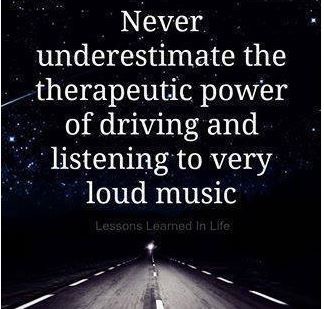
 Every time I buckle up and point my car down Highway 102 toward JBU, I anticipate flying down the twisting, turning two lane stretch between Centerton and Gentry with the radio cranked up – loud!
Every time I buckle up and point my car down Highway 102 toward JBU, I anticipate flying down the twisting, turning two lane stretch between Centerton and Gentry with the radio cranked up – loud!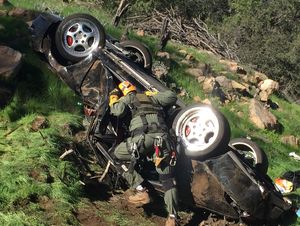 So, as much as I might itch to fly down highway 102, leaning into the curves and blasting down the straightaways, it’s highly unlikely that I will ever actually cut loose and do it. (Well, not the way I’d really like to anyway). I still have important relationships here to enjoy – and no amount of adventure and adrenaline is worth the price some other unsuspecting family might have to pay should I selfishly choose to ignore the risk to other drivers on the road one day and open that throttle up and fly.
So, as much as I might itch to fly down highway 102, leaning into the curves and blasting down the straightaways, it’s highly unlikely that I will ever actually cut loose and do it. (Well, not the way I’d really like to anyway). I still have important relationships here to enjoy – and no amount of adventure and adrenaline is worth the price some other unsuspecting family might have to pay should I selfishly choose to ignore the risk to other drivers on the road one day and open that throttle up and fly.



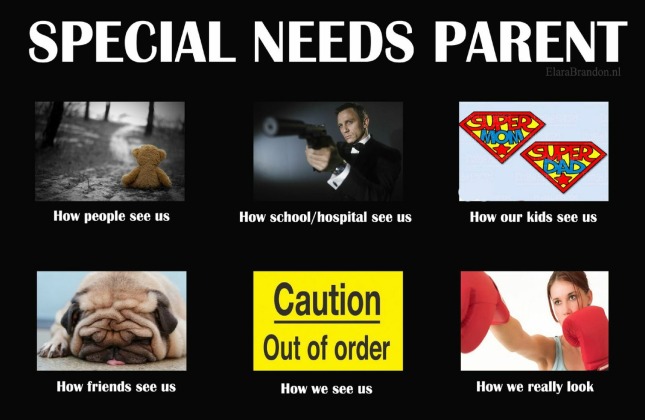


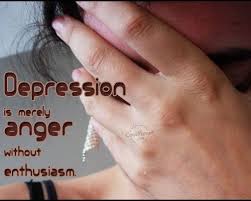
 In truth, that idea is nothing but a craftily designed hologram. An idea without formative substance. It’s equivalent to the land of Oz and the impotent wizard hiding behind the castle doors and green drape.
In truth, that idea is nothing but a craftily designed hologram. An idea without formative substance. It’s equivalent to the land of Oz and the impotent wizard hiding behind the castle doors and green drape.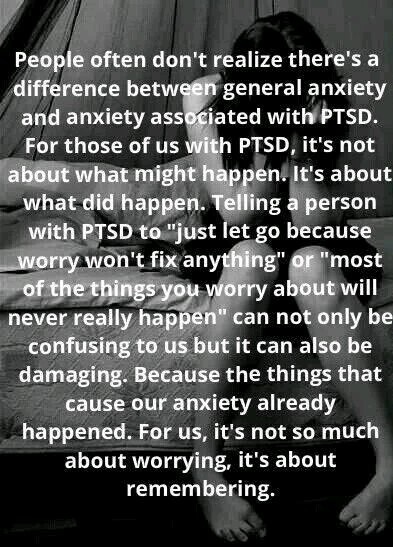 My grief recovery is complicated by the anticipation of more loss and the very real and reasonable fear of the destruction another loss will wreck within my heart. Even grieving families that aren’t dealing with progressive disease often struggle with the anticipation and fear of more loss. They’ve lost their naiveté – they know bad things can and will happen to them – not someone else – down the road. But for most it is a vague Spector on the periphery of their minds. For me it is a far more tangible presence and I must find a way to make peace with that and what it teaches me about the Lord.
My grief recovery is complicated by the anticipation of more loss and the very real and reasonable fear of the destruction another loss will wreck within my heart. Even grieving families that aren’t dealing with progressive disease often struggle with the anticipation and fear of more loss. They’ve lost their naiveté – they know bad things can and will happen to them – not someone else – down the road. But for most it is a vague Spector on the periphery of their minds. For me it is a far more tangible presence and I must find a way to make peace with that and what it teaches me about the Lord.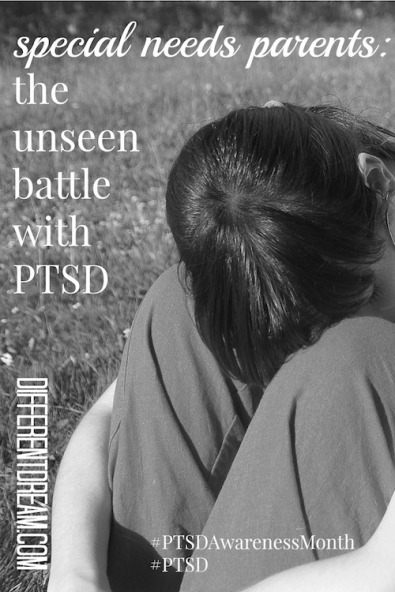 I have reached the point of acknowledging that the best I may be able to hope for in regards to ARSACS, may consist of a cycle of repeated but temporary interludes of peace.
I have reached the point of acknowledging that the best I may be able to hope for in regards to ARSACS, may consist of a cycle of repeated but temporary interludes of peace. Today, I am doing well to say without shame, my name is Janet Boxx. I am clinically depressed. I have anxiety issues. I have PTSD. I self medicate my anxiety with food. (Ok, that I’m ashamed of – although I’m happy to report that while I may be a glutton, at least for now I’m not a suicidal, drug or alcohol addicted, glutton). I lack the motivation to return phone calls, emails and text messages; to clean my house, pay bills, shop for groceries, do laundry and sometimes even to shower. It is what it is and my response to my life’s circumstances is not abnormal in the bereaved parents community, even two years down the road.
Today, I am doing well to say without shame, my name is Janet Boxx. I am clinically depressed. I have anxiety issues. I have PTSD. I self medicate my anxiety with food. (Ok, that I’m ashamed of – although I’m happy to report that while I may be a glutton, at least for now I’m not a suicidal, drug or alcohol addicted, glutton). I lack the motivation to return phone calls, emails and text messages; to clean my house, pay bills, shop for groceries, do laundry and sometimes even to shower. It is what it is and my response to my life’s circumstances is not abnormal in the bereaved parents community, even two years down the road.


 I haven’t wanted to talk about trauma and how it impacts an individual; those who grieve in particular. I haven’t wanted to go there primarily because of the reaction one receives if they try to talk about it; skepticism. I’m not sure if people think they can simply look at a person and tell they are dealing with the after effects of trauma, or if they simply don’t believe it happens to people outside of the military and first responder communities. Who knows? The truth is we all experience trauma; usually in small, manageable degrees. Generally we ride it out, push through it, brush it off and move forward and beyond it. We remain standing and to the outside world appear largely unscathed. But sometimes we experience trauma of a far greater magnitude. Below are the sobering statistics of how people are affected by trauma:
I haven’t wanted to talk about trauma and how it impacts an individual; those who grieve in particular. I haven’t wanted to go there primarily because of the reaction one receives if they try to talk about it; skepticism. I’m not sure if people think they can simply look at a person and tell they are dealing with the after effects of trauma, or if they simply don’t believe it happens to people outside of the military and first responder communities. Who knows? The truth is we all experience trauma; usually in small, manageable degrees. Generally we ride it out, push through it, brush it off and move forward and beyond it. We remain standing and to the outside world appear largely unscathed. But sometimes we experience trauma of a far greater magnitude. Below are the sobering statistics of how people are affected by trauma: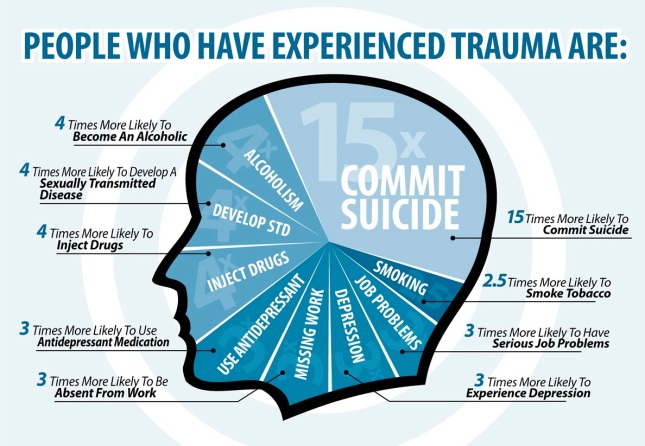
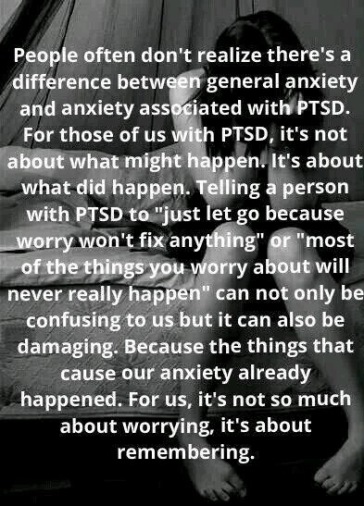
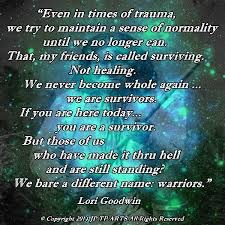 Rarely can you identify an individual who is coping with PTSD by simply observing their behavior. Unless you are present when they encounter a trigger, have a flashback or wake up screaming in the middle of the night, PTSD can silently hide beneath a veneer of socially acceptable behavior.
Rarely can you identify an individual who is coping with PTSD by simply observing their behavior. Unless you are present when they encounter a trigger, have a flashback or wake up screaming in the middle of the night, PTSD can silently hide beneath a veneer of socially acceptable behavior.